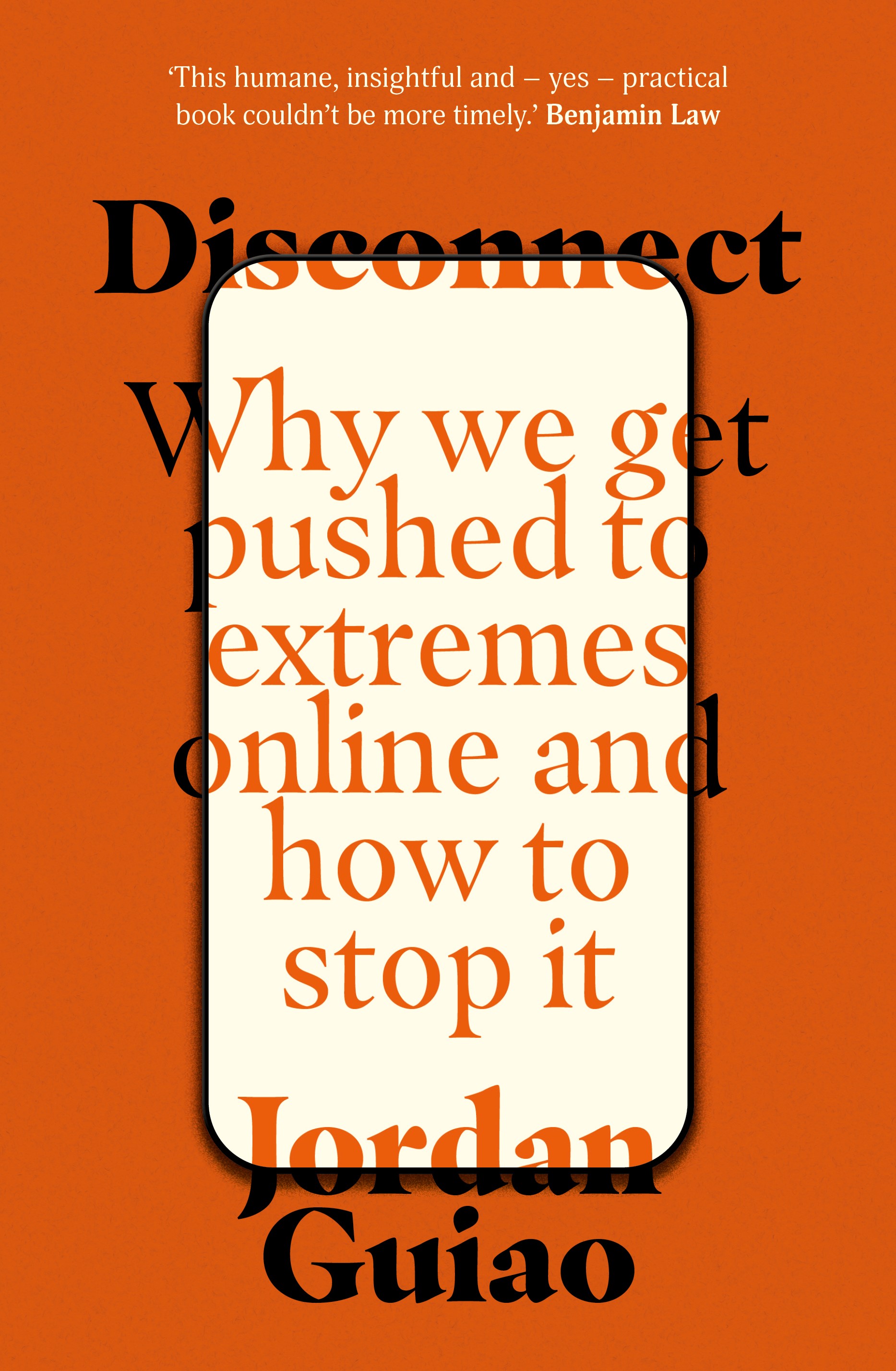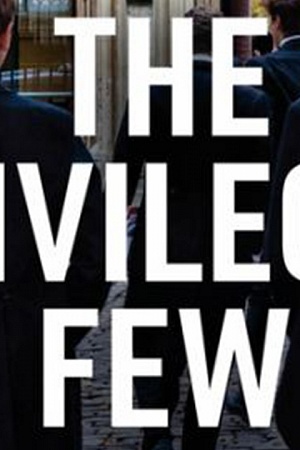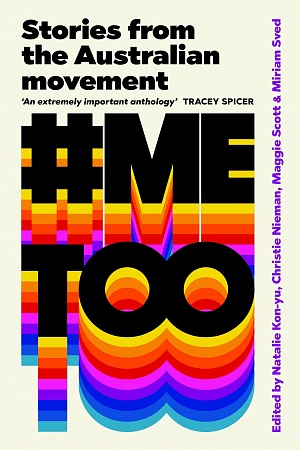Disconnect: Why we get pushed to extremes online and how to stop it
Monash University Publishing, $32.99 pb, 260 pp
Online polarisation
Reading a book about online polarisation is a bit like reading a murder mystery novel where the murderer is revealed on page one. We all know it was social media, on our devices, with the trolls, in the bedroom. What we don’t know is the human cost of our newly fragmented online world: the lives destroyed, the families torn apart, the friends permanently estranged when someone falls down an online rabbit hole.
It is easy to demonise those who fall victim to online trolling, conspiracies or fringe YouTube recommendations. What’s harder is to understand why it happened to them and how to prevent it happening again. In Disconnect: Why we get pushed to extremes online and how to stop it, Jordan Guiao reveals this more personal side of the story. ‘They are members of our community,’ Guiao writes. ‘[They are our] mothers, fathers, grandparents, sons, daughters, sisters, brothers, cousins’ – not just statistics in a government report. They are real people, he insists, whose lives have been upended by the online world and who now risk becoming conspiracy theorists or narcissists, sometimes losing touch with reality.
Guiao brings the perspective of a researcher to the book, with a touch of humility and empathy to boot. His work at the Australia Institute’s Centre for Responsible Technology shines through in every chapter. What surprised me was the writing style. This is a book that is hard to put down, which is surprising, given how much we all already know about the topic from the evening news.
Take his story of Diana, a QAnon believer, and her concerned friend, Stacey: ‘As Stacey got to know Diana, one thing stood out to her as a little odd – Diana loved to share conspiracy theories that she found online.’ Over time, Diana began to share more extreme stories. ‘This pattern of progression is characteristic for many QAnon victims,’ Guiao writes. ‘They begin sharing a little with close friends and family, and gradually this escalates in frequency and bizarreness.’ Stacey kept Diana in her life, but Guiao shares other stories where people have had to cut friends and family out of their lives, unable to handle the outlandish rants, the conspiracy ‘facts’ and the ‘evidence’.
Tracking this pain through recent events, the Covid lockdowns, and the US elections can make this book a confronting read. Guiao speaks to Kylie, who lost her job and became homeless during Covid. The only place she found solace was in an online, anti-lockdown group. Kylie jumped at the opportunity to join the convoy to Canberra, an echo of the Canadian ‘freedom truck’ movement. ‘I literally just packed up the car, took my dog, and just went,’ she says. It is when we are at our most vulnerable, Guiao suggests, a time when we need access to social services, a kind word, or a friend, that we become most vulnerable to online extremism.
Far from bringing us closer together, the internet seems to rely increasingly on our personal insecurities, fears, and weaknesses. What’s more, the messaging from extremists is increasingly tailor-made for a local audience. Conspiracy has turned into its own brand of local news, while real local stations are going out of business. Guiao observes how ‘Hollywood sex-trafficking tunnels morphed into storm-drain sex-trafficking tunnels beneath Melbourne; the list of those detained in the military prison Guantanamo Bay grew to include Victorian premier Dan Andrews, who became a target after strict lockdown rules [and] Australian 8chan users claimed a Sydney couple had been cured of Covid-19 after injecting disinfectant.’
Marshall McLuhan famously wrote: ‘The medium is the message.’ So too on social media, where the combination of disembodied anonymised voices, filter bubbles, rage cycles, and information overload creates the perfect breeding ground for systematically targeting our tired, stressed-out minds for recruitment into bizarre fringe extreme groups.
Nonetheless, Guiao sees hope in regulation, especially in the European Union. With privacy laws and an AI Act on the way, there is a tangible sense that the EU is leading here. Other solutions include making tech products ethical by design. He also proposes killing the hero worship of big tech creators and judging them in the light of day. Finally, he suggests that we need to temper our discussion of technology to ‘reflect and reassess’. This will work only if coupled with speedy regulation.
While it is all well and good to point out the dangers of big tech overseas, Guiao fails to grapple with how far behind the rest of the world Australia really is. Guiao cites great Australian research but fails to mention how many of our think tanks take money directly from Microsoft and Google, companies that fail to pay their fair share of taxes. He likewise fails to mention our unique status as one of the few Western countries without comprehensive privacy laws; one of the many reasons why Tinder, Facebook and other tech giants openly admit to ‘testing first’ in Australia before rolling out their updates overseas.
Grappling with the nature of big tech in Australia requires a much more critical look at our institutions, universities, and government than Guiao proposes. As it stands, he lays out the battleground where such a fight should take place. By showing us personal stories of big tech overreach, Guiao proves that the conspiracy theorists we hear about on the evening news are really just our neighbours, and that it is time for us to mobilise to protect citizens. Our future as a cohesive society depends on us preventing further polarisation. To put it bluntly, we must gain control of the tech platforms, before they gain control of us.
















Comment (1)
That is, the idea that democracy as constructed is founded on the cynical view that the masses are ungovernable and must be coerced and hoodwinked.
Seeing what is unfolding online lends some weight to the view that when the masses realise that democracy is something in the manner of a fib all hell will break loose. Doubtless, it's less dramatic than that and indeed may be more nuanced, but needless to say, Plato may have prepared a very different version of 'The Republic' if he had to contend with a scenario in which all citizens had a highly lubricated and wide-ranging capacity for instantantaneous dialogue.
Leave a comment
If you are an ABR subscriber, you will need to sign in to post a comment.
If you have forgotten your sign in details, or if you receive an error message when trying to submit your comment, please email your comment (and the name of the article to which it relates) to ABR Comments. We will review your comment and, subject to approval, we will post it under your name.
Please note that all comments must be approved by ABR and comply with our Terms & Conditions.